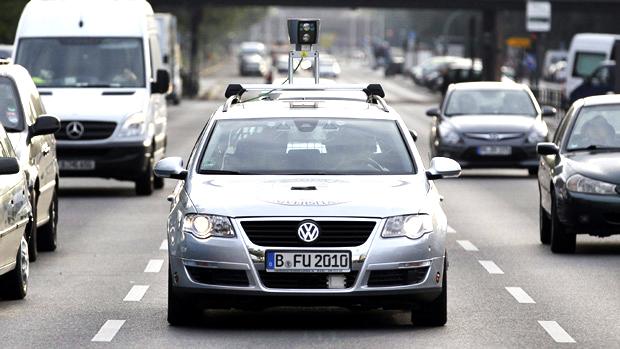Driverless cars
Florida is one of four states that currently allows public road testing of driverless smart cars (along with California, Nevada, and Washington DC). The Google Smartcars have driven over 500,000 miles in Florida as of last year without an accident by computer fault.
The addition of the driverless system will be slow since this isn’t just cruise control. The onboard computer uses precise data maps to navigate and laser sensors to keep track of other cars and obstacles on the road.
Of course, this isn’t I, Robot, and there will be an override function for the driver to take control for stressful tasks or last second decisions. The car even prompts drivers to take control in those situations, much like a backseat driver.
This is a not true driverless car, and the system is not and will probably never be perfect. A driver is still required to program the route like a GPS and keep an eye on the road. However, this will give a new level of freedom for people who could not operate a car normally before, such as the elderly or handicapped.
Besides Google, Bosch is making a system to turn regular vehicles into assisted vehicles, although their current system adds at least two more feet to the top of the vehicle. Luxury car manufacturers BMW and Volvo are planning to have assisted vehicles as the technology matures.
It is unknown how this new technology will affect existing driving laws.Also, it will be a long time before someone can drive the vehicle without at least a basic driver’s license.
Since this isn’t a vehicle on a fixed rail and anything can happen on the open road, drivers will still need some level of alertness and awareness of other drivers and the environment.
For people worried about the vehicle’s reaction time, at 40 mph, a human driver on average stops within 12 feet, the assisted vehicle can stop within 9 feet.
However, whose fault is it if the assisted car accidentally kills a person? People will not accept a family member dying and leaving it as, “The car killed your son, not me.”
The head of the Association for Unmanned Vehicles International, Michael Toscano, said “If a child steps out at 10 feet, the human kills the child, the automated car doesn’t. At 8 feet, either one will kill the child. We accept humans to be faulty, but we don’t accept machines killing human beings.”

Alexander Rose is a Managing Editor of The Hawkeye.
Alex was born in Tampa, Florida. He lived in Honduras for four years then moved to Brooksville...


Danette Trimboli • Oct 14, 2013 at 12:24 pm
As scary as this all seems (it may just be a commonplace as a cellphone in a few years though), I do see the benefits behind the idea of it. Most of those benefits are for, as mentioned, the elderly and the handicapped. I think having a car that can move on its own would be greatly freeing for them. However, I do see the controversy behind it as well, and I’m sure it won’t be something everyone will want to try out. But like the article mentioned, at least there’s an override system. I would have to have these robot-cars take over the world!